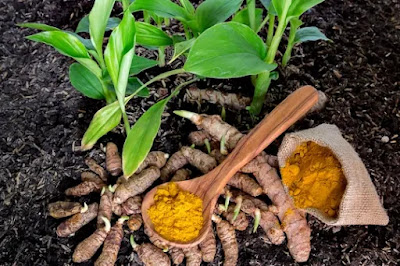Medicinal Plants With Pros and Cons
Medicinal plants are plants that have been historically and traditionally used for their therapeutic or healing properties. These plants contain various compounds, such as alkaloids, flavonoids, and essential oils, that can have medicinal benefits when used for health-related purposes. Medicinal plants have been a source of natural remedies for a wide range of ailments and health conditions for centuries.The use of medicinal plants can involve different parts of the plant, including leaves, roots, bark, flowers, and seeds. These plants can be processed into various forms, such as teas, tinctures, extracts, or topical applications, to harness their medicinal properties.
Examples of medicinal plants include aloe vera, ginseng, echinacea, chamomile, and ginger. Each plant may have specific compounds that offer various health benefits, ranging from pain relief and immune system support to anti-inflammatory and antimicrobial effects.
It's important to note that while medicinal plants can offer natural and potentially beneficial remedies, their effectiveness and safety can vary widely. It's advisable to consult with healthcare professionals or herbalists when considering the use of medicinal plants, especially if you have underlying health conditions or are taking other medications.
Medicinal Plants List
Certainly! Here's a list of some common medicinal plants and their benefits:
Aloe Vera: Known for its skin-soothing properties and used to treat burns, cuts, and skin conditions.
Peppermint: Helps with digestion, eases headaches, and relieves respiratory issues.
Lavender: Used for its calming effects, to promote sleep, and relieve stress and anxiety.
Echinacea: Boosts the immune system and can help reduce the severity and duration of colds.
Ginger: Relieves nausea, aids digestion, and has anti-inflammatory properties.
Turmeric: Known for its anti-inflammatory and antioxidant properties, often used for joint health.
Chamomile: Helps with sleep, relaxation, and can soothe an upset stomach.
Garlic: Has antimicrobial properties and may lower cholesterol and blood pressure.
Ginseng: Known for its energy-boosting properties and potential to improve mental clarity.
Milk Thistle: Supports liver health and can help with detoxification.
Valerian: Used as a natural remedy for insomnia and anxiety.
St. John's Wort: Often used for mild to moderate depression and anxiety.
Eucalyptus: Used to relieve respiratory issues and congestion.
Rosemary: May improve memory and concentration, and has antioxidant properties.
Calendula: Known for its anti-inflammatory and skin-healing properties.
Benefits:
Natural Healing: Medicinal plants offer natural remedies, which some people prefer over synthetic drugs.
Wide Range of Uses: They can be used to treat a variety of ailments, from minor issues like colds and headaches to more serious conditions like diabetes or high blood pressure.Reduced Side
Effects: In many cases, medicinal plants have fewer side effects compared to pharmaceutical drugs.
Cultural and Traditional Value: Many cultures have a long history of using specific plants for medicinal purposes, preserving valuable traditional knowledge.
Sustainability: Medicinal plants can often be grown sustainably, reducing the environmental impact of pharmaceutical production.
Disadvantages:
Lack of Standardization: The potency of medicinal plants can vary widely, making it difficult to ensure consistent dosages.
Interactions and Allergies: Some people may experience allergic reactions or negative interactions with other medications when using medicinal plants.
Limited Scientific Evidence: While some plants have well-documented medicinal properties, not all have been thoroughly studied, leading to uncertainty about their safety and effectiveness.
Misuse and Overdose: Without proper knowledge and guidance, there is a risk of using medicinal plants incorrectly or in excessive amounts, which can be harmful.
Regulatory Concerns: Regulation of medicinal plants varies by country, which can lead to quality control issues and potentially unsafe products on the market.
Conclusion
medicinal plants have been utilized for centuries across various cultures for their potential therapeutic benefits. They offer a diverse range of remedies for common health issues, from skin conditions to digestive problems and beyond. However, it's crucial to approach their use with caution and seek guidance from healthcare professionals. The efficacy and safety of medicinal plants can vary, and they may interact with medications or have side effects. While these plants hold promise, responsible and informed use is essential to ensure their potential health benefits are realized without unintended consequences.Seek advice from healthcare professionals or herbalists when considering medicinal plant use, especially if you have health conditions or are taking medications. Proper identification and dosage are crucial.Remember that the effectiveness and safety of medicinal plants can vary widely, so it's essential to approach their use with caution and informed decision-making.



















Comments
Post a Comment